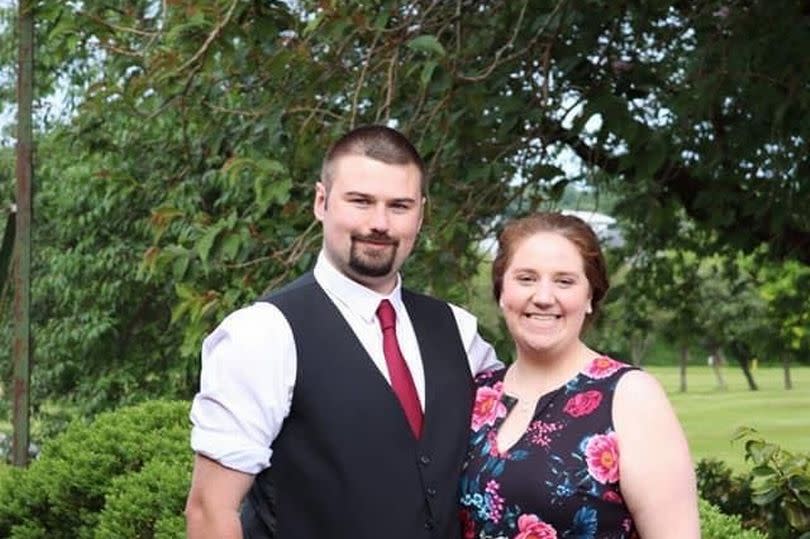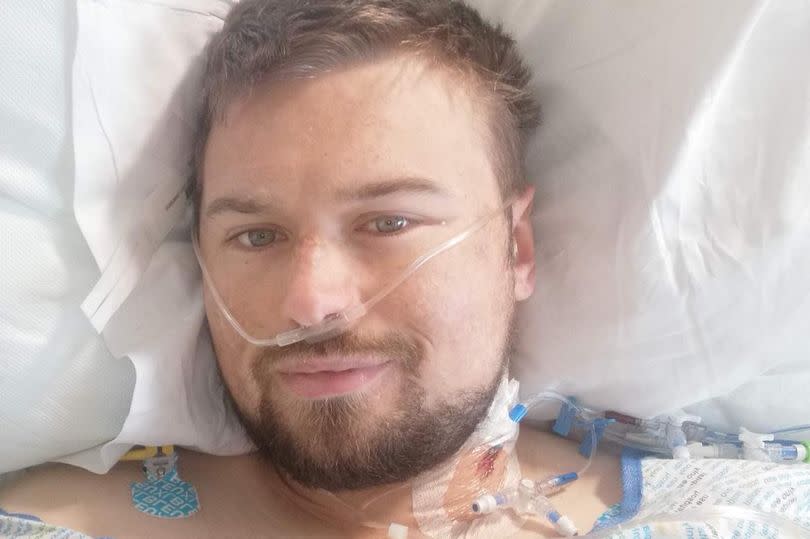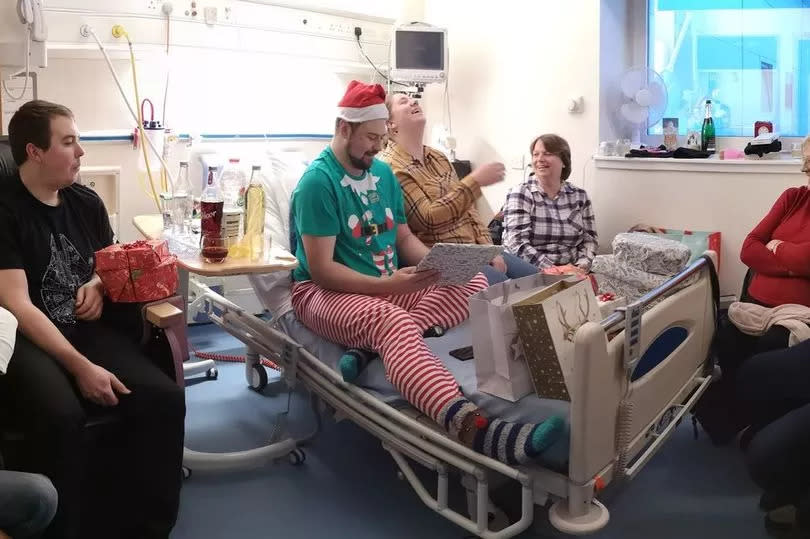Edinburgh patient admitted to ICU as medics tell him 'get to hospital now'

When Chris Clarke was 18, he was playing rugby and ended up covered in mud head to toe, which is not unusual for the sport.
But when he washed it all off, he got a rash on his face which didn’t shift. He eventually went to his GP who used to be a dermatologist so he knew to send Chris a referral to a specialist straight away and to get a skin biopsy.
This and along with several blood markers, confirmed that Chris in fact had lupus. It was a very quick turnaround for a diagnosis - with many taking several years. Now aged 30, Chris said of the discovery: “I had never heard of lupus. I had no idea until they said you’ve got this.”
READ MORE: Edinburgh to see week long deluge and thunderstorms following warm weather spell
READ MORE: Pilot brands Edinburgh his 'favourite city' as he retires after 27 years in cockpit
Lupus is a disease that occurs when your body's immune system attacks your own tissues and organs. Resulting inflammation can affect many different body systems — including your joints, skin, kidneys, blood cells, brain, heart and lungs.
He was fairly healthy before this diagnosis. The only visible symptom he had was the “butterfly rash”. Chris suddenly had three different consultants looking after him and started medications, but to him, he didn’t feel much different.
By 2015 he was put on a chemotherapy drug called rituximab. He said: “It was a wonder drug, I felt less tired, less sore. But while this was all going on I was still working full time as a quantity surveyor.”
Although Chris felt a huge improvement from this medication, his kidneys were on a slow gradual decline with only 5-10 percent kidney function.

Chris had to go on dialysis at this point. He opted for peritoneal dialysis, where the blood is cleaned inside your body as opposed to outside as with haemodialysis. Peritoneal dialysis meant it could be done at home after a few training sessions as opposed to frequent hospital visits.
In 2019, after two years of being on dialysis, Chris was put on the transplant list. He was backdated the two years as he was not able to have a transplant while his Lupus was in an active flare.
If he had a transplant during a flare up, his body would have attacked and rejected the kidney straight away. He wouldn’t have stood a chance.
Chris had been maintaining a good level of health, taking his medications, doing his dialysis and had met his partner, Charlotte. He then got a phone call at 2am one morning - things were suddenly looking up for him.
He recalled: “It was absolutely amazing, I remember getting the phone call. I was on my dialysis machine overnight and got the phone call about 2am. I was still connected to the machine which had short cables, and I was trying to reach my parents' bedroom to chap on the door and wake them up.”
The couple had to immediately go, stop by the local hospital to pick up medical records, and drive to the Royal Infirmary. Edinburgh has the only transplant unit in Scotland.
Chris woke up in the ICU after the major operation. He didn't feel too well and couldn't keep food or water down. When you have a kidney transplant you have to drink 10 litres a day to flush out and kickstart the new kidney.

Chris said: "This is interesting, I always assumed they’d take the old kidneys out and put the new one in. But because this was my first transplant, they leave your native kidneys in at the back and put your new one round the front in the stomach area.”
Join Edinburgh Live's Whatsapp Community here and get the latest news sent straight to your messages.
Life was going well for Chris. He got out after two weeks and initially had weekly check-up's in Edinburgh.
Fast forward a few months and in December 2019, Chris had a phone call later on in the day after one of his appointments. Chris recalled the harrowing phone call: “We need you to come into Edinburgh now”. The new kidney started to reject.
Chris arrived and was in the Intensive Care Unit by himself. A nurse came in and told him it was rejection. Chris was in shock and broke down.
He stayed in for four weeks, and was unable to go home for Christmas. He recalled: “My mum brought in homemade Christmas dinner, it was still piping hot in the slow cooker, it survived the trip.”
His whole family, his partner and her family all came through to the hospital and squeezed into the little room.

Chris recovered but over the last two years he has had rejection two more times. His kidney function is at 23 percent currently. It is looking likely he will have to go back on dialysis at the end of the year.
Now working as a support worker assisting people in their day to day lives, Chris said: “I thoroughly enjoy it. It isn’t too strenuous for me, it is a wonderful balance for me”.
Chris is quite vocal in helping people really understand lupus. He often is asked to go into the local hospital and talk to the student doctors about his condition. He also appeared on Greg James' BBC1 show to talk.
He said: “I really want people to understand what's going on, you can’t always see what is going on underneath. The best way I can describe what lupus is, your body is playing rugby, and instead of tackling the opposition it’s tackling its own team.”
May 10 marks World Lupus Day. LUPUS UK is the only national registered charity supporting people with systemic lupus and discoid lupus and assisting those approaching diagnosis. Its website states: "We are a network of more than five million people around the world who are living with Lupus. Lupus is a complicated condition which is still very poorly understood by the public and many within the medical profession."
Find out more about the condition here.
Sign up for Edinburgh Live newsletters for more headlines straight to your inbox

 Yahoo News
Yahoo News 
